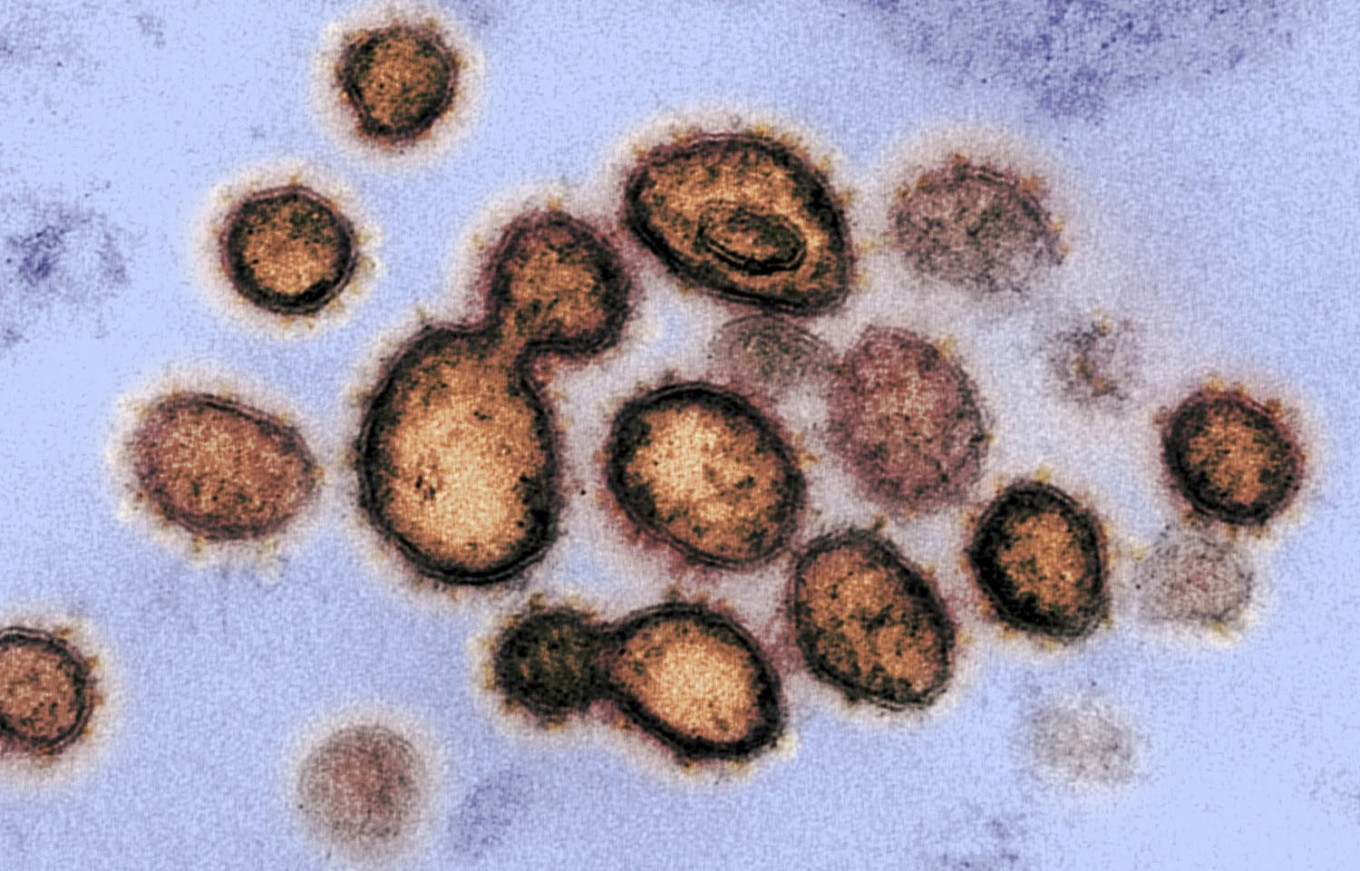Popular Reads
Top Results
Can't find what you're looking for?
View all search resultsPopular Reads
Top Results
Can't find what you're looking for?
View all search resultsCoronavirus traces found in March 2019 sewage sample, Spanish study shows
There was the potential for a false positive due to the virus’ similarities with other respiratory infections.
Change text size
Gift Premium Articles
to Anyone
 This handout illustration image obtained Feb. 27 courtesy of the National Institutes of Health taken with a transmission electron microscope shows SARS-CoV-2, the virus that causes COVID-19, isolated from a patient in the US, as Virus particles are shown emerging from the surface of cells cultured in the lab - the spikes on the outer edge of the virus particles give coronaviruses their name, crown-like. - President Donald Trump has played down fears of a major coronavirus outbreak in the United States, even as infections ricochet around the world, prompting a ban on pilgrims to Saudi Arabia. China is no longer the only breeding ground for the deadly virus as countries fret over possible contagion coming from other hotbeds of infection, including Iran, South Korea and Italy. There are now more daily cases being recorded outside China than inside the country, where the virus first emerged in December, according to the World Health Organization. (AFP/Handout / National Institutes of Health)
This handout illustration image obtained Feb. 27 courtesy of the National Institutes of Health taken with a transmission electron microscope shows SARS-CoV-2, the virus that causes COVID-19, isolated from a patient in the US, as Virus particles are shown emerging from the surface of cells cultured in the lab - the spikes on the outer edge of the virus particles give coronaviruses their name, crown-like. - President Donald Trump has played down fears of a major coronavirus outbreak in the United States, even as infections ricochet around the world, prompting a ban on pilgrims to Saudi Arabia. China is no longer the only breeding ground for the deadly virus as countries fret over possible contagion coming from other hotbeds of infection, including Iran, South Korea and Italy. There are now more daily cases being recorded outside China than inside the country, where the virus first emerged in December, according to the World Health Organization. (AFP/Handout / National Institutes of Health)
S
panish virologists have found traces of the novel coronavirus in a sample of Barcelona waste water collected in March 2019, nine months before the COVID-19 disease was identified in China, the University of Barcelona said on Friday.
The discovery of virus genome presence so early in Spain, if confirmed, would imply the disease may have appeared much earlier than the scientific community thought.
The University of Barcelona team, who had been testing waste water since mid-April this year to identify potential new outbreaks, decided to also run tests on older samples.
They first found the virus was present in Barcelona on Jan. 15, 2020, 41 days before the first case was officially reported there.
Then they ran tests on samples taken between January 2018 and December 2019 and found the presence of the virus genome in one of them, collected on March 12, 2019.
“The levels of SARS-CoV-2 were low but were positive,” research leader Albert Bosch was quoted as saying by the university.
The research has been submitted for a peer review.
Dr Joan Ramon Villalbi of the Spanish Society for Public Health and Sanitary Administration told Reuters it was still early to draw definitive conclusions.
“When it’s just one result, you always want more data, more studies, more samples to confirm it and rule out a laboratory error or a methodological problem,” he said.
There was the potential for a false positive due to the virus’ similarities with other respiratory infections.
“But it’s definitely interesting, it’s suggestive,” Villalbi said.
Bosch, who is president of the Spanish Society of Virologists, said that an early detection even in January could have improved the response to the pandemic. Instead, patients were probably misdiagnosed with common flu, contributing to community transmission before measures were taken.
Prof. Gertjan Medema of the KWR Water Research Institute in the Netherlands, whose team began using a coronavirus test on waste water in February, suggested the Barcelona group needs to repeat the tests to confirm it is really the SARS-CoV-2 virus.
Spain has recorded more than 28,000 confirmed deaths and nearly 250,000 cases of the virus so far.









